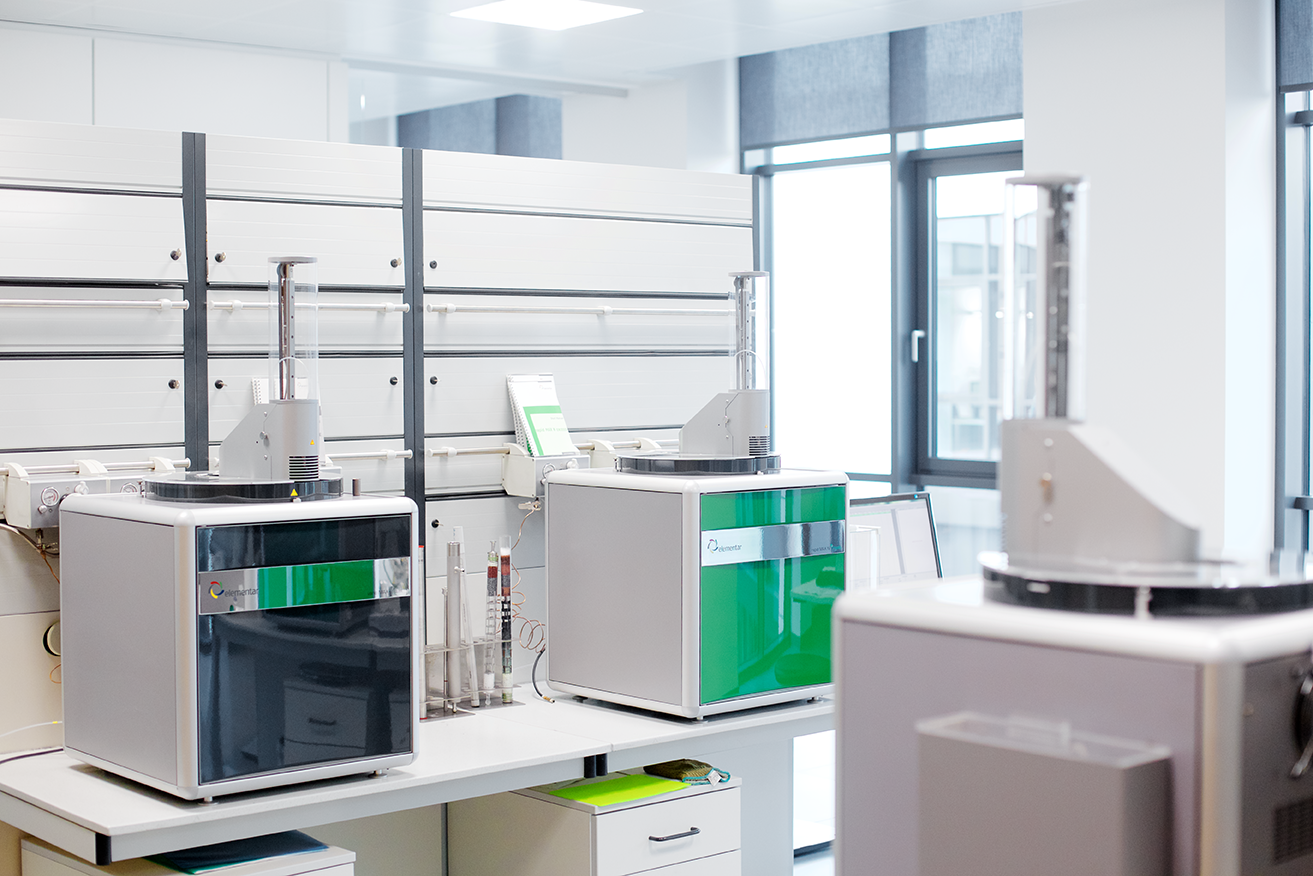
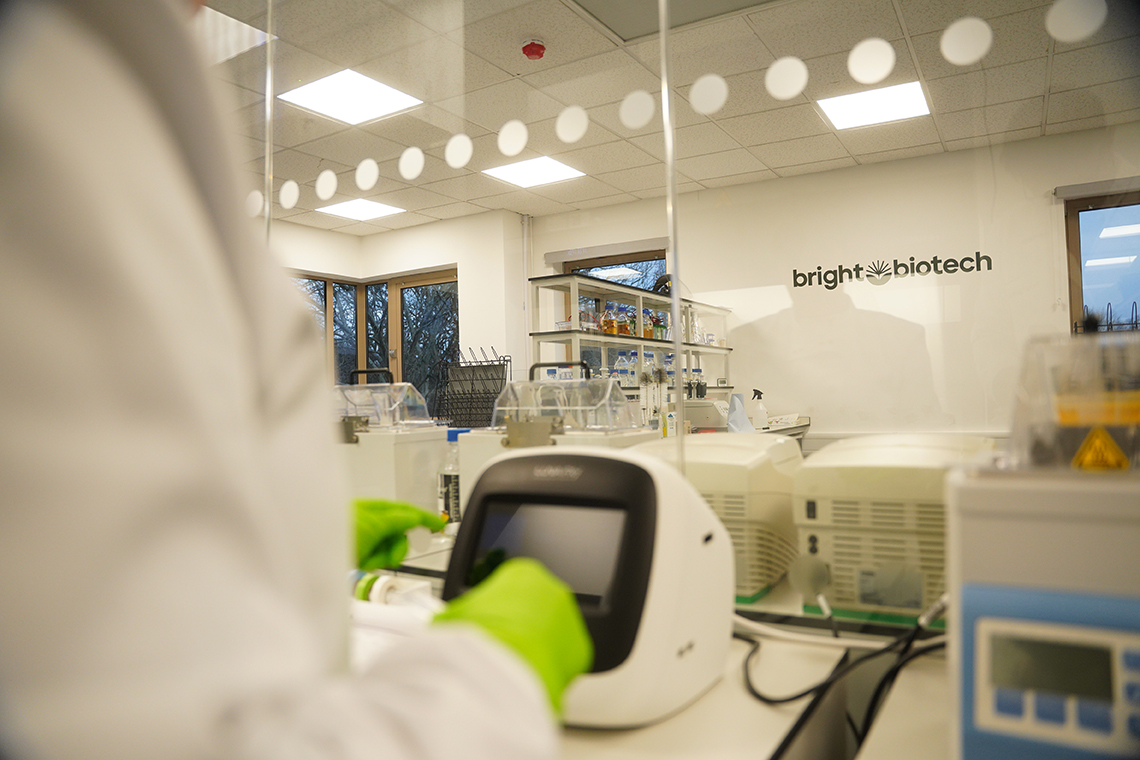
Why Bright Biotech believes molecular farming is the future of protein production
Mohammad El Hajj explains how Bright Biotech’s technology could become the go-to enabling solution to bring cultivated meat into the mainstream
When asked how a guy from Lebanon wound up running a biotech startup in Manchester, UK, Mohammad El Hajj, CEO of Bright Biotech, explains that it wasn’t the famous music or football scene that initially drew him to the Northern powerhouse. “I came here in 2011 specifically to join the lab of Anil Day, who is one of the fathers of chloroplast biotechnology,” he recalls. El Hajj’s interest in exploring this area of research had begun when doing his undergraduate degree in general biology. “There I came across the different technologies that are used to make recombinant proteins. We’ve just scratched the surface of plant biotechnology, and that’s what triggered my curiosity to want to know more. Anil Day was pioneering chloroplast biotechnology – looking into the genetic system of chloroplasts [organelles within the cells of plants and certain algae that are the site of photosynthesis] to use them as vehicles for recombinant protein expressions.”
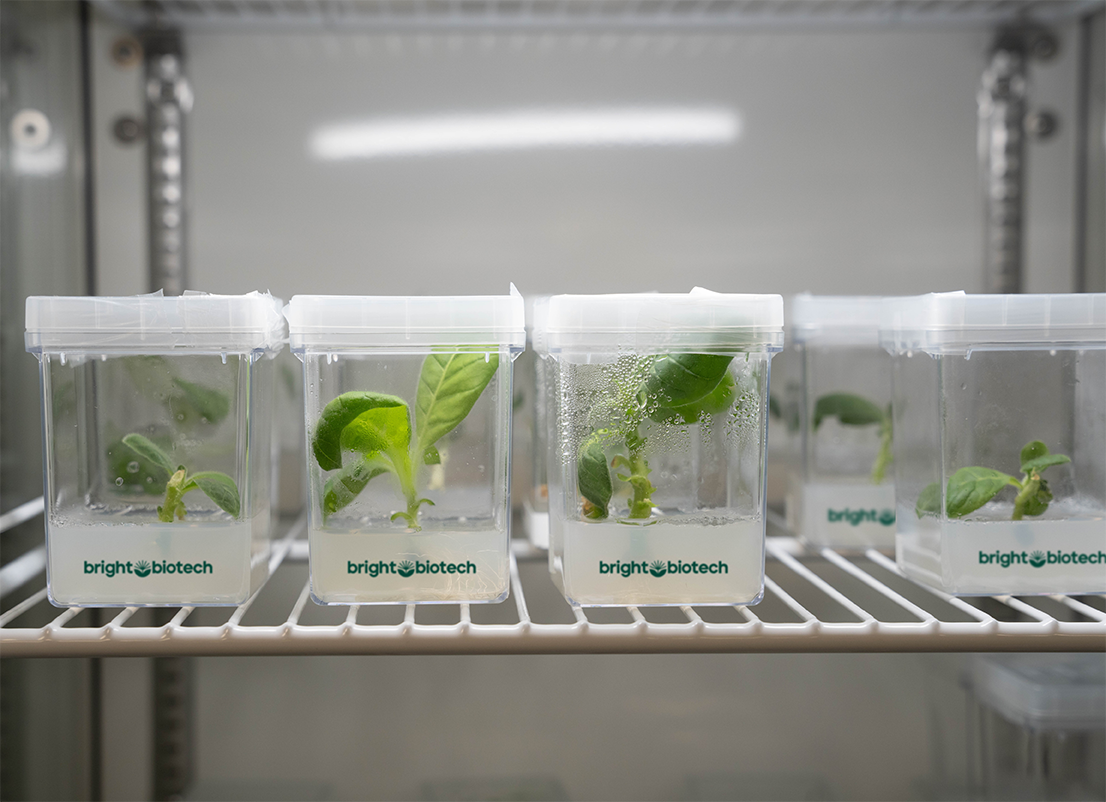
Happily for someone with an eye on commercializing such technology from the start, El Hajj also notes that, “Manchester was one of the very few universities in the world that was offering a joint program between the Life Sciences school and the Business school, allowing scientists to bridge the gap between science and business, and take modules to explore how to take the research from the lab to the market.”
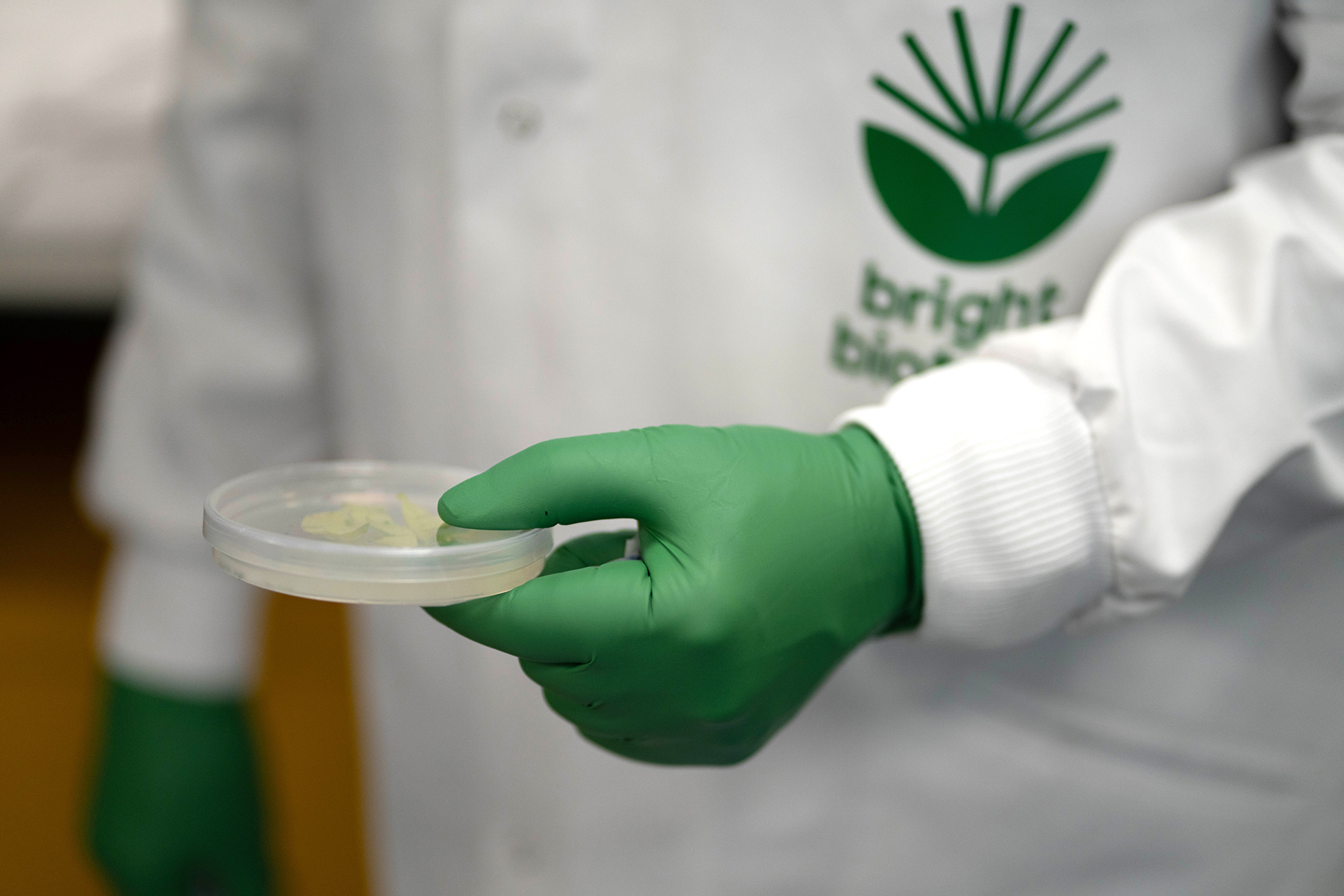
El Hajj evidently did well in both parts of his postgrad degree. Soon after completing it, he co-founded Bright Biotech, which is a molecular farming startup with a focus on developing technologies to reduce the cost of producing cultivated meat.
Planting the seeds
The initial plan was for El Hajj to commercialize technology to bring down the costs of recombinant proteins for medicines (his background in Lebanon, where advanced medical care is the preserve of the elite, makes him a fierce proponent for greater democracy in medicine). “The first business models that I developed was to use molecular farming to make medicine for people that are not able to pay for it,” he says, adding that he acknowledges this may have been an overly ambitious aim. “Along this journey, there was some pivoting until I landed on an industry that can generate profit for the company while at the same time having great impact and transforming the ways proteins are made,” he recalls. “The impact I always wanted to make was in addressing food security and health security. And this is something that molecular farming allows us to do.”
A key target market for El Hajj to achieve that impact is in cell-cultivated meat. “We’re true believers in cultivated meat,” he states. “Obviously, the industry has been going through its ups and downs, but it will get there. We already have minimum viable products; there are several companies that have shown that this technology is possible. But the challenges remain in reaching price parity and scalability.”

Bright Biotech provides a technology that addresses one of the major challenges in the cultivated meat sector, which is the availability and the cost of ingredient proteins that are needed to provide cells with the cues to grow and multiply.
In short, the company is making growth factors using molecular farming techniques. But what is unique about this approach? “The way we do growth factors is by making use of the chloroplast genetic system – and there are a number of advantages that come with using that system,” El Hajj explains. “We know that the more common systems are the fermentation-based ones that are reliant on mammalian and microbial cells. They have been used extensively in biopharma. However, they might not be the best models for the food industry because of the infrastructure that is involved in making proteins in bioreactors. Also, there are limiting factors in terms of the requirement for high-quality water, and the yields that you can actually get from these technologies.”
El Hajj says that using the chloroplast system has addressed the issue of yields. “The chloroplasts exist in a very high copy number in plant cells – we’re talking about 10,000 DNA copies. And the way the technology is designed, all of these DNA copies take in the foreign gene, giving you an extremely high number of transcripts, which translates into a high yield of the protein.
“We also address regulatory concerns, which was a major issue for adopting molecular farming in the first generation of the technology, mainly because of public concerns about the escape of the foreign gene into the environment, and the use of antibiotic-resistant marker genes.”
El Hajj notes that the chloroplasts are maternally inherited, so there’s no worry about pollen grains containing the foreign gene escaping into the environment. “In addition to that, we’ve advanced our technology to excise antibiotic marker genes.”
If you weren’t already on-side with his plans, El Hajj also points out that his technology has a net-zero potential – something he feels is super-important when considering the future of protein production.
I believe molecular farming will become the go-to platform for several proteins
On fast-forward
Progress is occurring at a rapid rate at Bright Biotech, both on the scientific and the business side. El Hajj says that a large part of the firm’s IP is in speeding up chloroplast transformation process (i.e. the time it takes to generate the transgenic plant). “To make this process shorter, we’ve enhanced the design of our vectors. We capitalize on a phenomenon that’s present within chloroplasts called homologous recombination. In all standard designs of chloroplast transformation vectors, you have sequences that are compatible with homologous sequences present within the chloroplast’s DNA, and by delivering the DNA into the chloroplasts (which we do through accelerating gold particles coated by the DNA into the chloroplasts), they integrate within specific sites in the chloroplast genome through the homologous recombination that is naturally present within chloroplasts. And then you use the protein expression machinery of the chloroplast to make the proteins.”
El Hajj’s eloquent explanations almost make this work sound easy, but realistically, can these very high-tech solutions be rolled out for large-scale commercial applications? “That’s a very interesting question, because we’re currently looking deeply into a life-cycle assessment and techno-economic analysis, and then comparing it with all of the other technologies,” reveals El Hajj. “But from the readings that we’ve done, we can already see molecular farming will form a critical part of the future landscape. Obviously, I’m not saying that it is capable of doing all proteins. We will still need the fermentation-based technologies. But for the proteins that molecular farming can do, I think it will be the go-to platform.

“In terms of scalability, on the growing side we’re looking into both open-field growth and vertical farming. Each approach has its pros and cons,” El Hajj continues. “But in terms of the upstream processing, molecular farming has a winning case compared with fermentation-based technologies here. Even looking at the waste streams, with fermentation-based technologies, the treatment of waste is very costly – as opposed to molecular farming, where there is a lot of waste material generated but we are already thinking of a circular economy so that all the secondary metabolites can be used in other industries.”
Infrastructure innovation
Ultimately, Bright Biotech’s commercial proof of concept will be in integrating molecular farming with the cultivated meat sector, which is heavily dependent on bioreactors. “We believe that it doesn’t make any sense to overwhelm the fermentation-based infrastructure, because a lot of it is going to be allocated between biopharma and cultivated meat,” he says. “So why use fermentation-based technologies just to make one ingredient for the process? This is where molecular farming has the edge. It’s enabling the cultivated meat sector without putting any more strain on the existing – or maybe not even existing yet – infrastructure.”
For more information visit www.brightbiotech.co.uk
If you have any questions or would like to get in touch with us, please email info@futureofproteinproduction.com


%20ILVO%202.jpg)
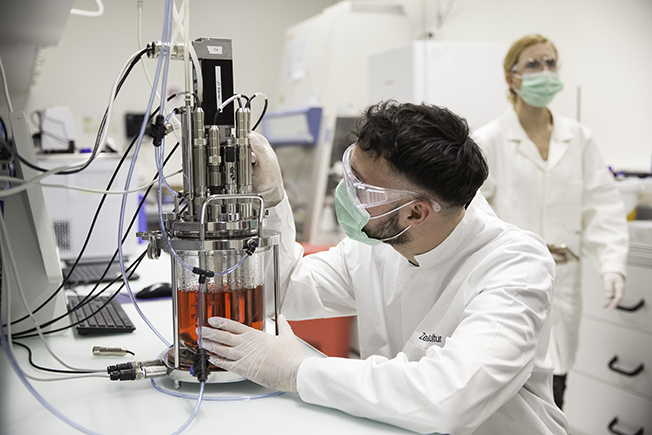
.png)
